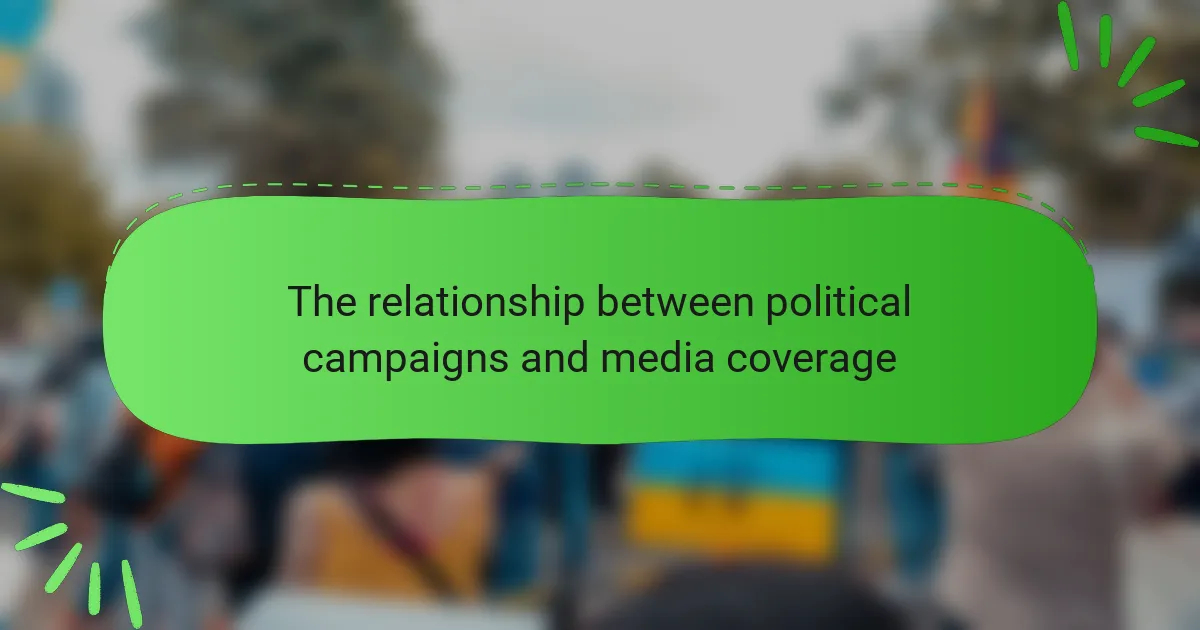Political campaigns and media coverage are essential components of the electoral process, influencing each other in significant ways. Media coverage plays a crucial role in shaping public perception of political candidates, with campaigns depending on media to effectively communicate their messages to voters. Increased visibility through media can enhance a candidate’s appeal, while negative coverage […]
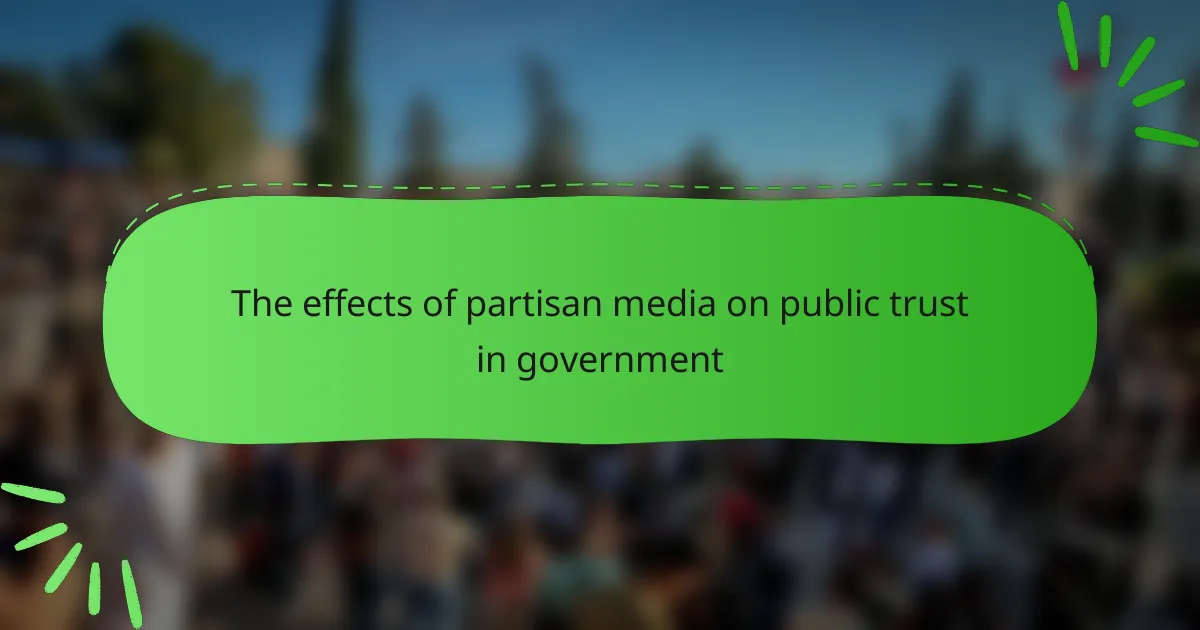
The effects of partisan media on public trust in government
Partisan media refers to news outlets that present information aligned with specific political ideologies, significantly influencing public trust in government institutions. Research indicates that exposure to partisan media leads to increased audience polarization, resulting in diminished trust in government. Key mechanisms include selective exposure, where individuals consume media that reinforces their beliefs; framing, which shapes […]
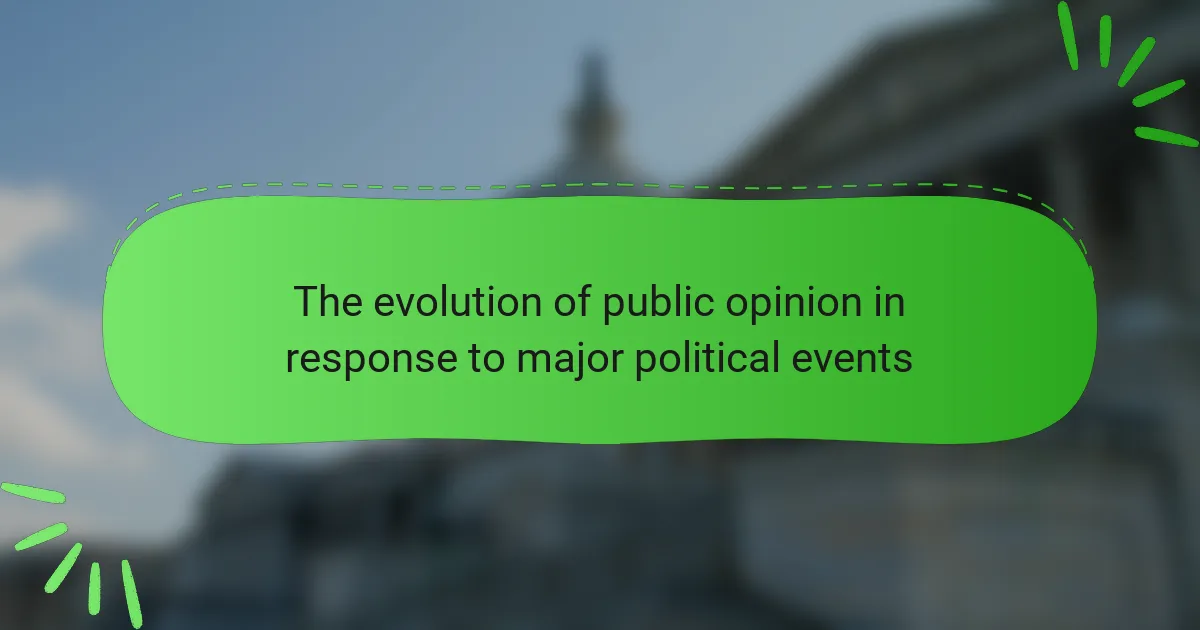
The evolution of public opinion in response to major political events
Public opinion refers to the collective attitudes and beliefs of individuals regarding political events and issues. This article examines how public opinion evolves in response to major political events, highlighting the stages of awareness, interest, evaluation, and action. It discusses the immediate emotional reactions to events, such as the September 11 attacks, and how these […]
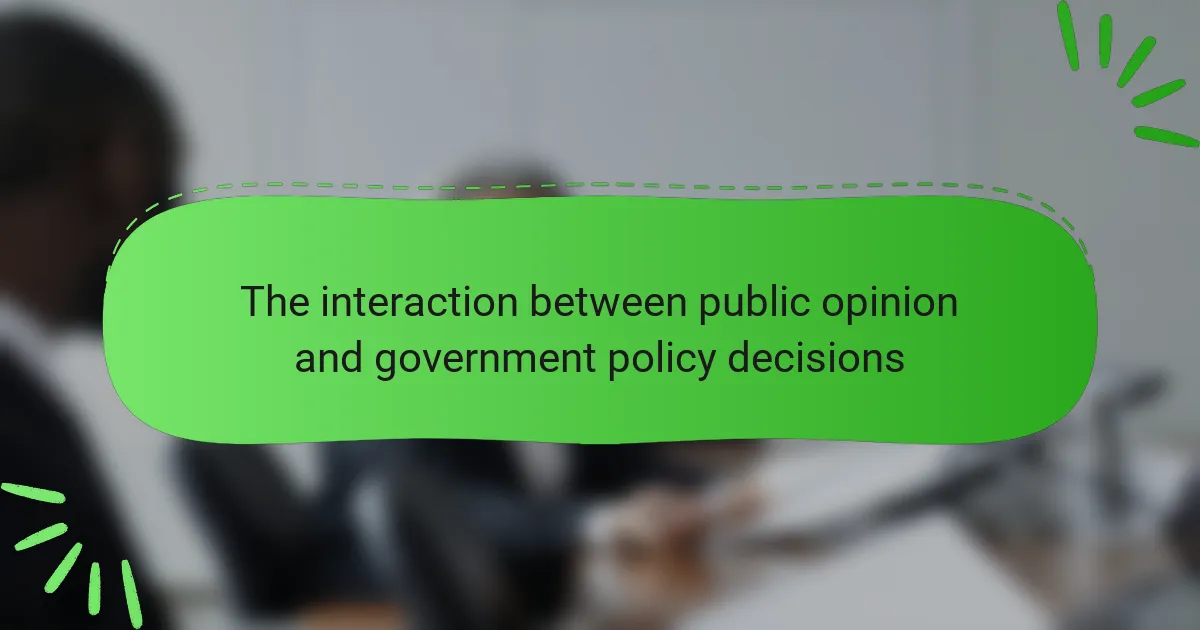
The interaction between public opinion and government policy decisions
Public opinion plays a crucial role in shaping government policy decisions. Policymakers utilize various methods, such as surveys, polls, and social media analysis, to gauge public sentiment and adjust their strategies accordingly. High public support can expedite the enactment of legislation, while strong opposition can lead to delays or rejections. The article examines the dynamic […]
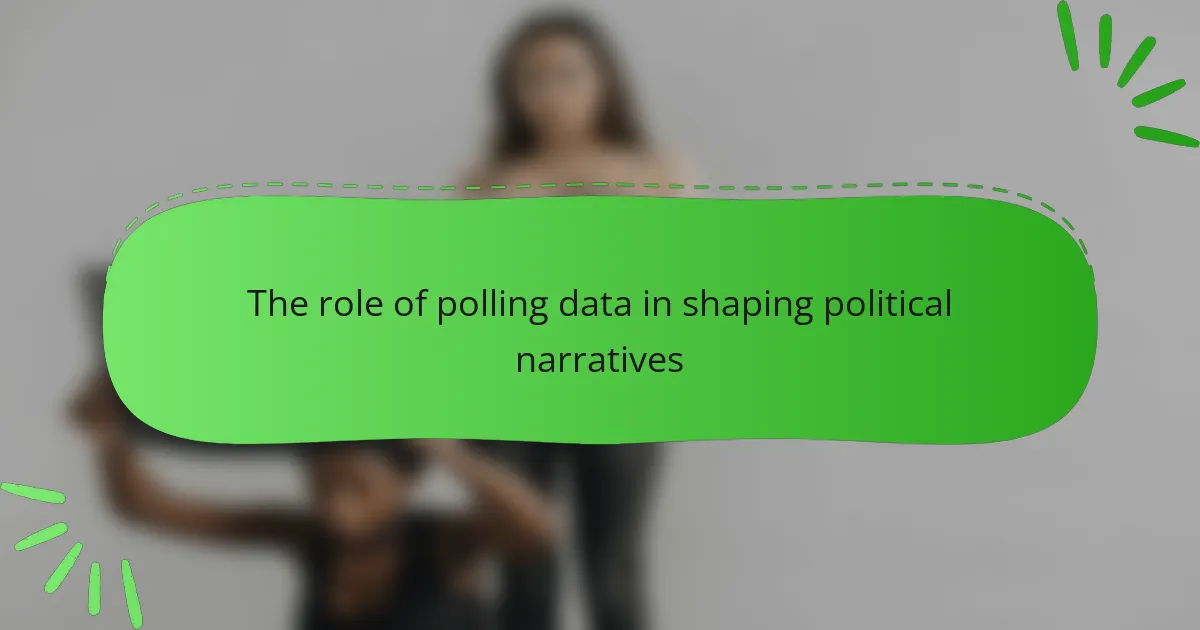
The role of polling data in shaping political narratives
Polling data is a key entity that significantly influences political narratives by providing insights into public opinion and voter preferences. This data is utilized by politicians and political parties to customize their messages and focus on issues that resonate with voters, such as healthcare. Additionally, polling results shape media coverage and public discourse, creating perceptions […]
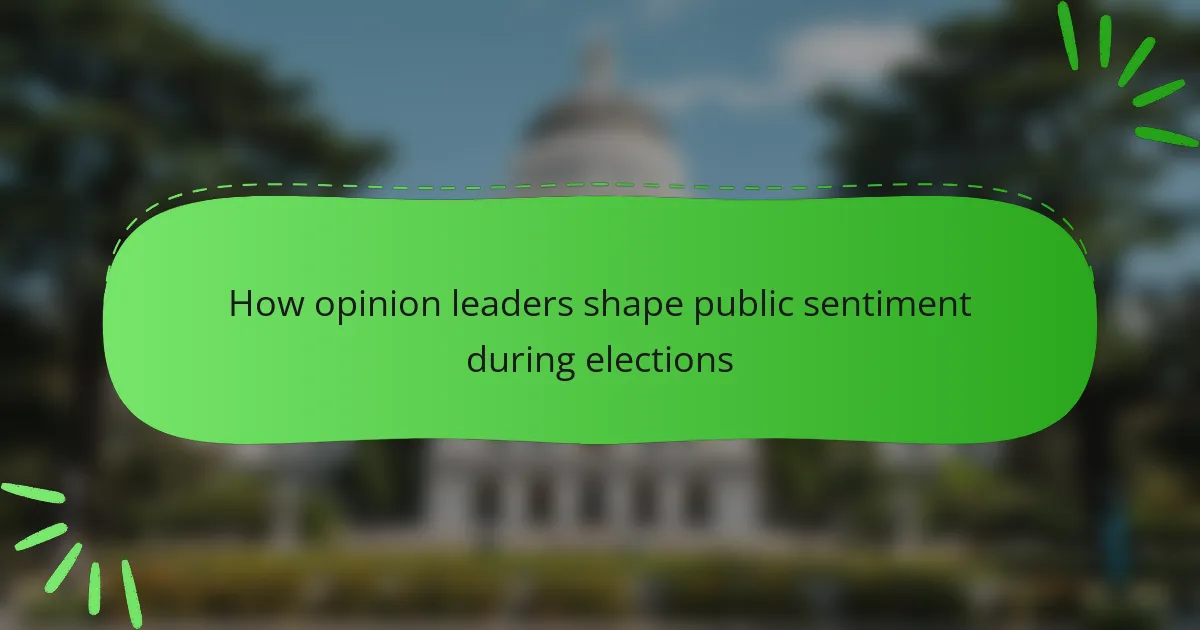
How opinion leaders shape public sentiment during elections
Opinion leaders are individuals who influence public sentiment during elections by shaping perceptions and guiding opinions within their communities. They possess credibility and expertise, allowing them to amplify messages from political candidates and parties. Various types of opinion leaders, including political activists, media personalities, and community leaders, play significant roles in mobilizing voters and shaping […]
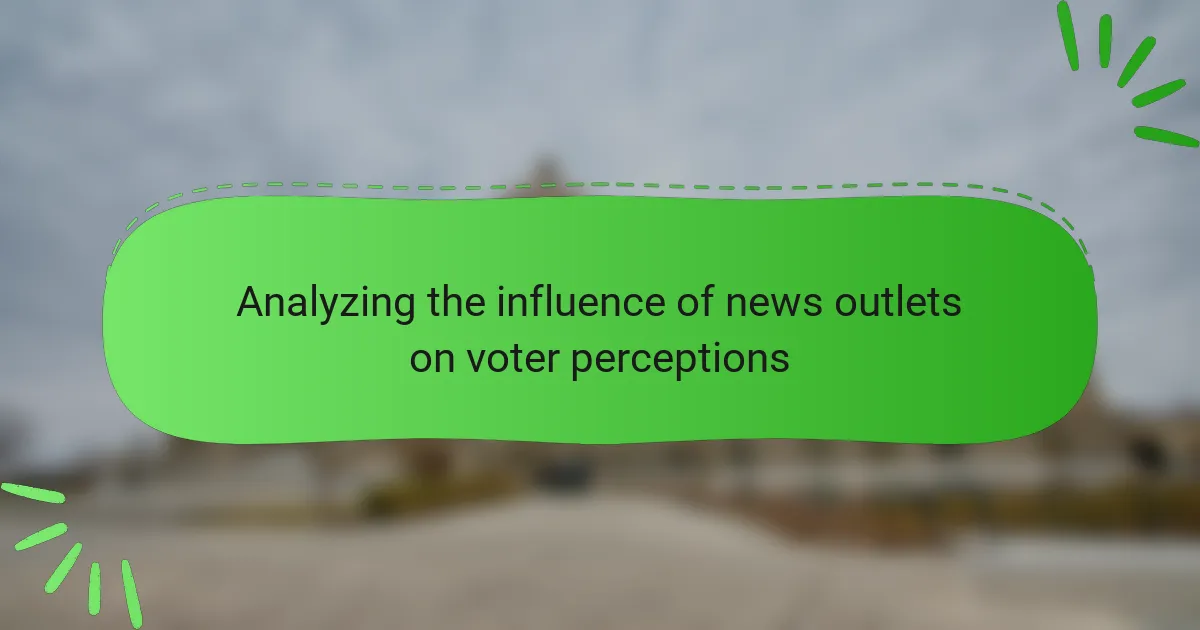
Analyzing the influence of news outlets on voter perceptions
News outlets are crucial entities that significantly shape voter perceptions and public opinion in political contexts. They influence which issues are prioritized in coverage and how these issues are framed, often leading to biased interpretations through selective reporting. Research indicates that a substantial portion of the adult population, specifically 62%, accesses news via social media, […]
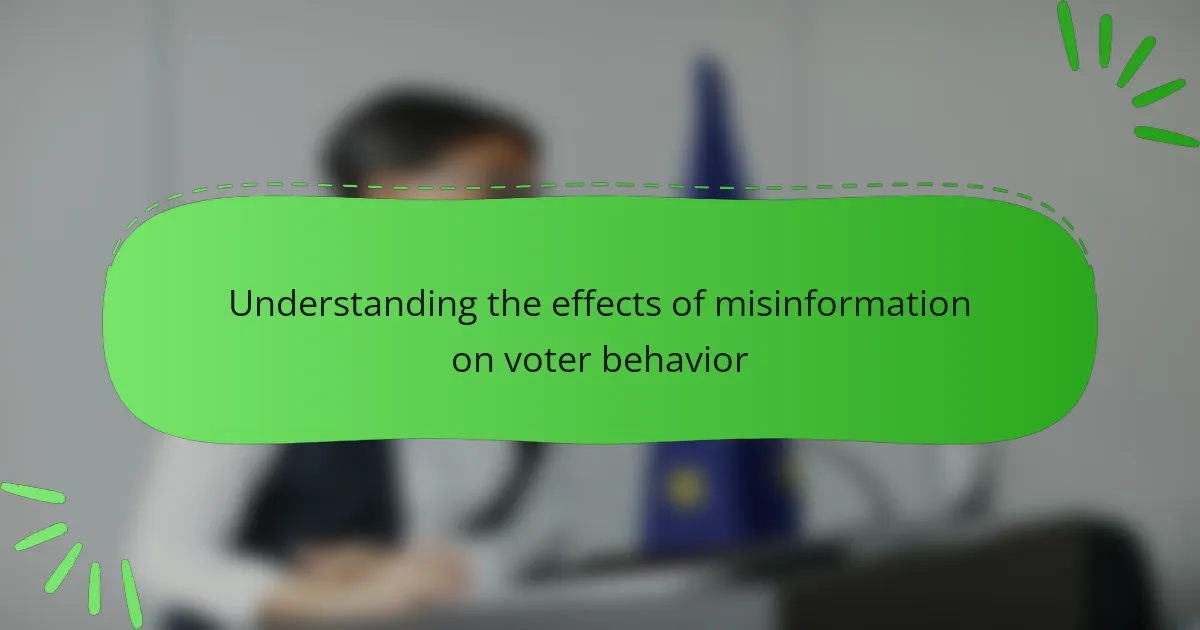
Understanding the effects of misinformation on voter behavior
Misinformation significantly impacts voter behavior, leading to confusion about candidates and policies, which can result in misinformed decisions and decreased voter turnout. Research shows that 64% of Americans believe misinformation influences their voting choices, contributing to increased polarization and extreme voting patterns. Common types of misinformation include false claims about candidates, misleading statistics, and fabricated […]
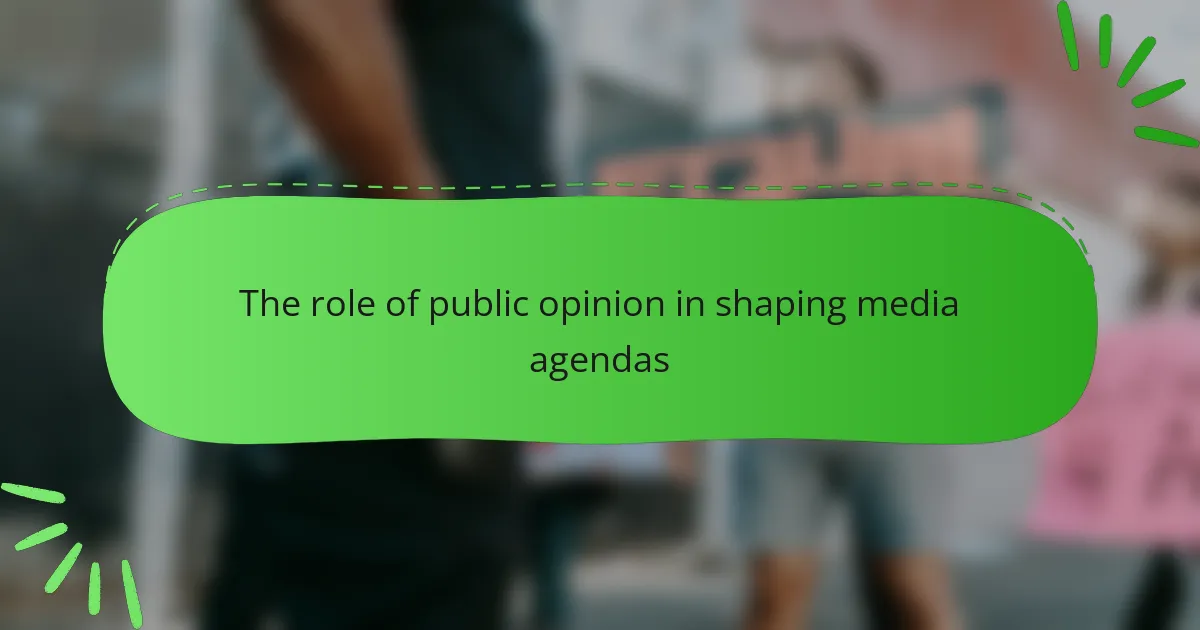
The role of public opinion in shaping media agendas
Public opinion is a critical factor in shaping media agendas, influencing which topics receive coverage and priority. Media outlets align their content with audience sentiments, often reflecting public interests and concerns. This responsiveness is evident during significant events, such as elections, where media focus shifts according to prevailing public opinions. Additionally, the relationship between media […]
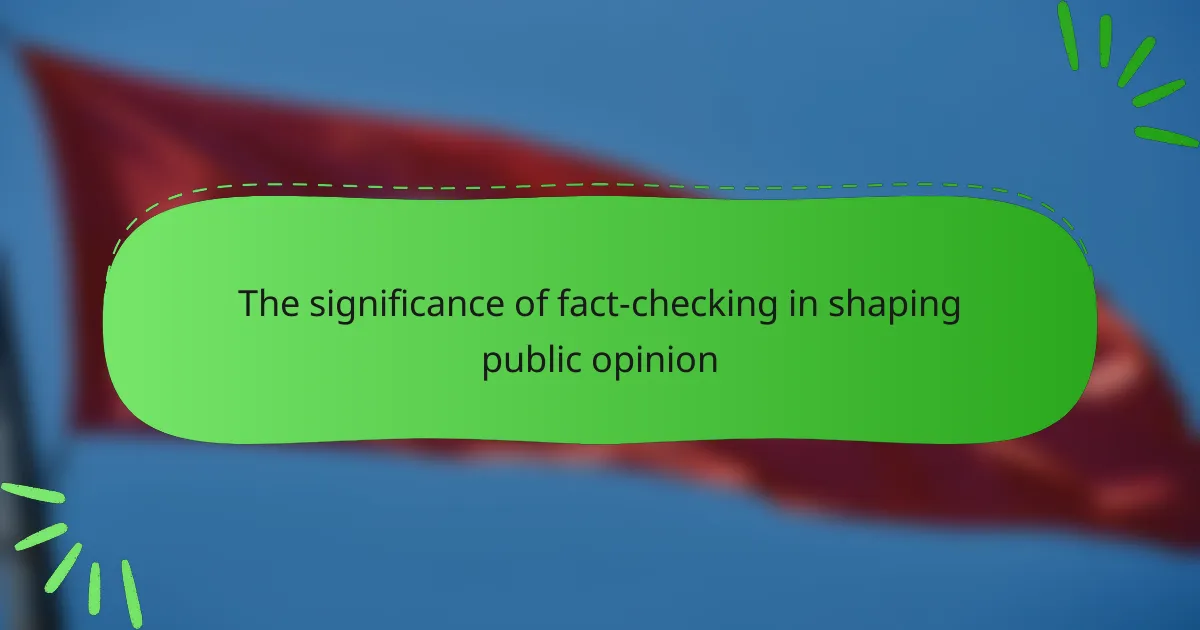
The significance of fact-checking in shaping public opinion
Fact-checking is a critical process that enhances the accuracy and accountability of information dissemination, significantly influencing public opinion. It combats misinformation and disinformation, thereby empowering individuals to make informed decisions. Various methods, including source verification, cross-referencing, expert consultation, data analysis, and context assessment, are employed to validate claims and ensure reliability. Research indicates that exposure […]
